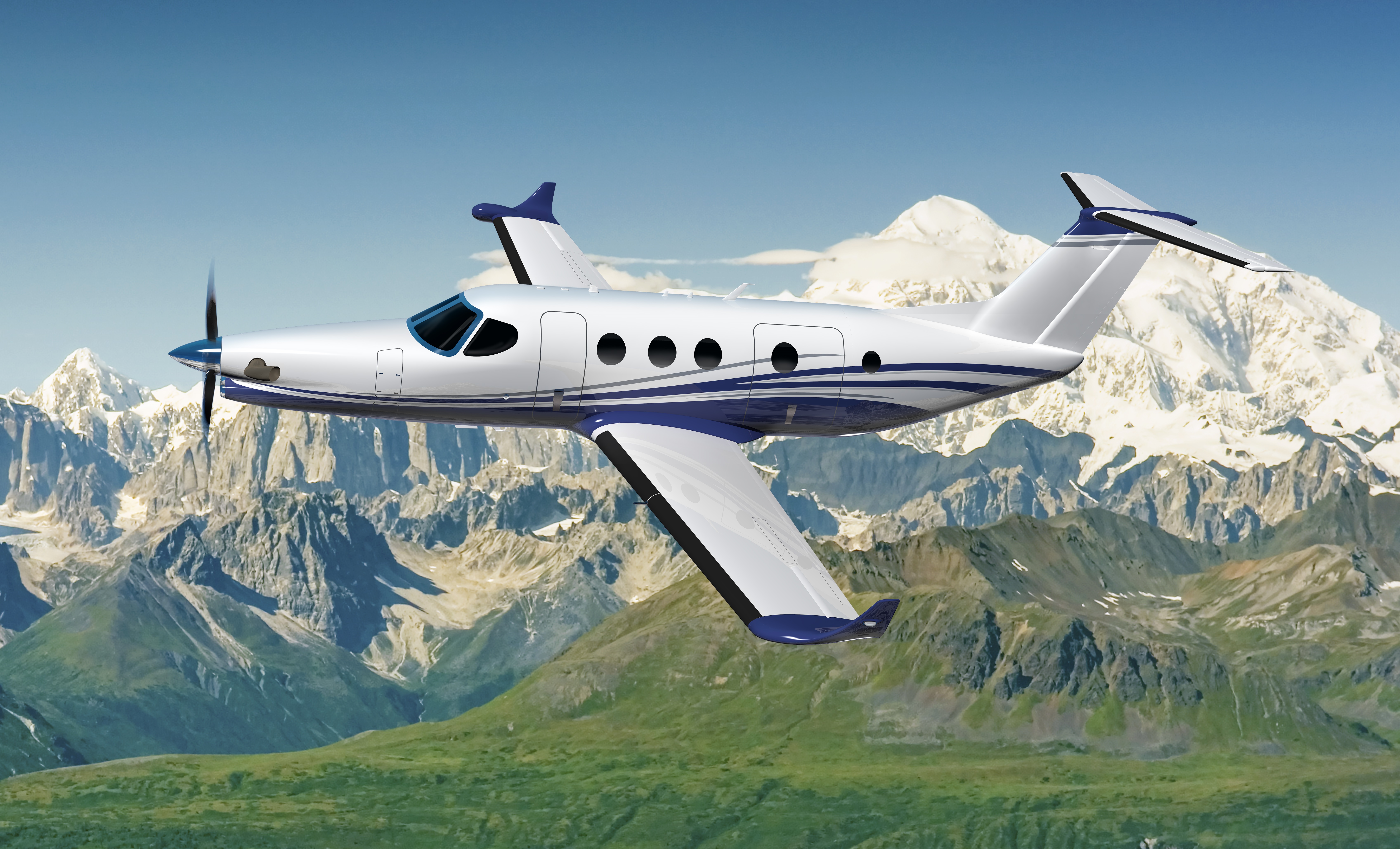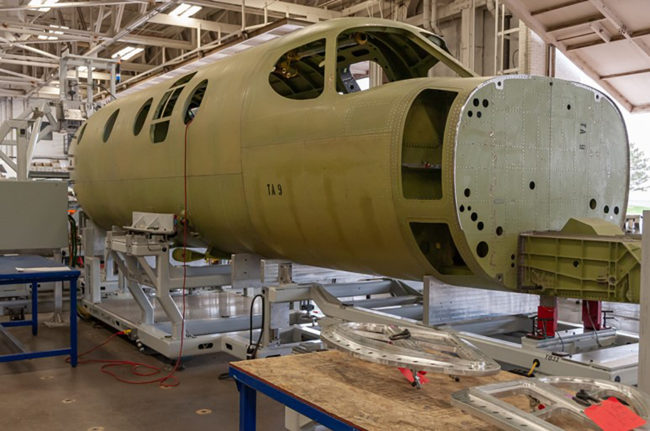

GENEVA (May 28, 2018) – Textron Aviation Inc., a Textron Inc. (NYSE:TXT) company, today updated the development status of its new high-performance Cessna Denali single-engine turboprop during the European Business Aviation Convention and Exhibition (EBACE) 2018. Fabrication of the nose section, fuselage, wings and tail cone of the first three flying prototypes is underway, paving the way for the aircraft to enter the market with best-in-class performance.

Program engineers are busy building and testing initial flight test articles using production assembly tools manufactured in-house, and continue to conduct static and fatigue tests on ground test articles.
“The clean-sheet Denali is unlike any other aircraft in its class in terms of advanced technology and performance. For that reason, we’re seeing great interest throughout Europe from piston owners looking to step up to more performance, as well as from turboprop operators,” said Rob Scholl, senior vice president, Sales and Marketing. “In the development of this aircraft, we’re combining proven processes used to design and develop our newest Citation jets with the innovative technology of GE’s new Catalyst engine to deliver customers a best-in-class aircraft.”
Throughout the program’s development, Textron Aviation has integrated new automation and robotic technologies into production, increasing product quality and efficiency throughout the assembly line. The company looks forward to achieving the first wing mate and completing the prototype airframes as the program nears first flight targeted for early 2019.
The Denali will be equipped with the first clean-sheet turboprop engine to hit the business and general aviation market in more than 30 years – the GE Catalyst. GE Aviation announced first engine runs of its all-new advanced turboprop engine in late 2017.
About the Denali
Engineered to achieve cruise speeds of 285 knots and full fuel payload of 1,100 pounds, the Denali will have a range of 1,600 nautical miles at high-speed cruise with one pilot and four passengers and will be able to fly nonstop from London to Moscow, Los Angeles to Chicago or New York to Miami. From Geneva, the Denali will be able to fly nonstop to nearly any major European city, including Athens and Moscow.
A first for aircraft in this class, the FADEC-equipped, 1,240 shaft horse-power GE Catalyst engine will ease pilot workload with its single-lever power and propeller control. The airplane will be equipped with McCauley’s new 105-inch diameter composite, 5-blade, constant speed propeller, which features full feathering with reversible pitch and ice protection. The engine is designed to deliver an initial 4,000-hour time between overhaul and offer class-leading performance retention for an outstanding hot/high capability.
The Denali will feature the Garmin G3000 intuitive touchscreen avionics suite and will include three large high-resolution displays with split-screen capability. The G3000 flight deck will include a solid-state weather radar, advanced Terrain Awareness Warning Systems (TAWS) and automatic dependent surveillance-broadcast (ADS-B) capabilities, ensuring compliance with the FAA’s NexGen air traffic control requirements.
The Denali’s flat floor cabin is the largest in its segment and is designed to easily convert between passenger and cargo configurations. The Denali’s cabin will feature an executive seating configuration of six individual reclining seats, club-configuration tables and refreshment unit or a commuter style seating layout with nine individual forward facing seats. The aircraft will boast a digital pressurization system maintaining a class-leading 6,130-foot cabin altitude at a service ceiling of 31,000 feet.
First in this class of aircraft, the Denali equips customers with an optional, externally serviceable belted lavatory with pocket door enclosure located in the back of the cabin. Denali customers will also enjoy very large cabin windows, interior LED lighting, a forward refreshment cabinet and an in-flight accessible baggage compartment.
Denali customers will have access to Textron Aviation’s unmatched global support network. Dedicated to complete life-cycle support, the company’s factory-direct service centers are staffed with expert service engineers offering maintenance, inspections, parts, repairs, avionic upgrades, equipment installations, refurbishments and other specialized services. Textron Aviation also offers a mobile support program featuring more than 60 mobile service units, a fleet of rapid-response support aircraft, and on-site service technicians and support.
